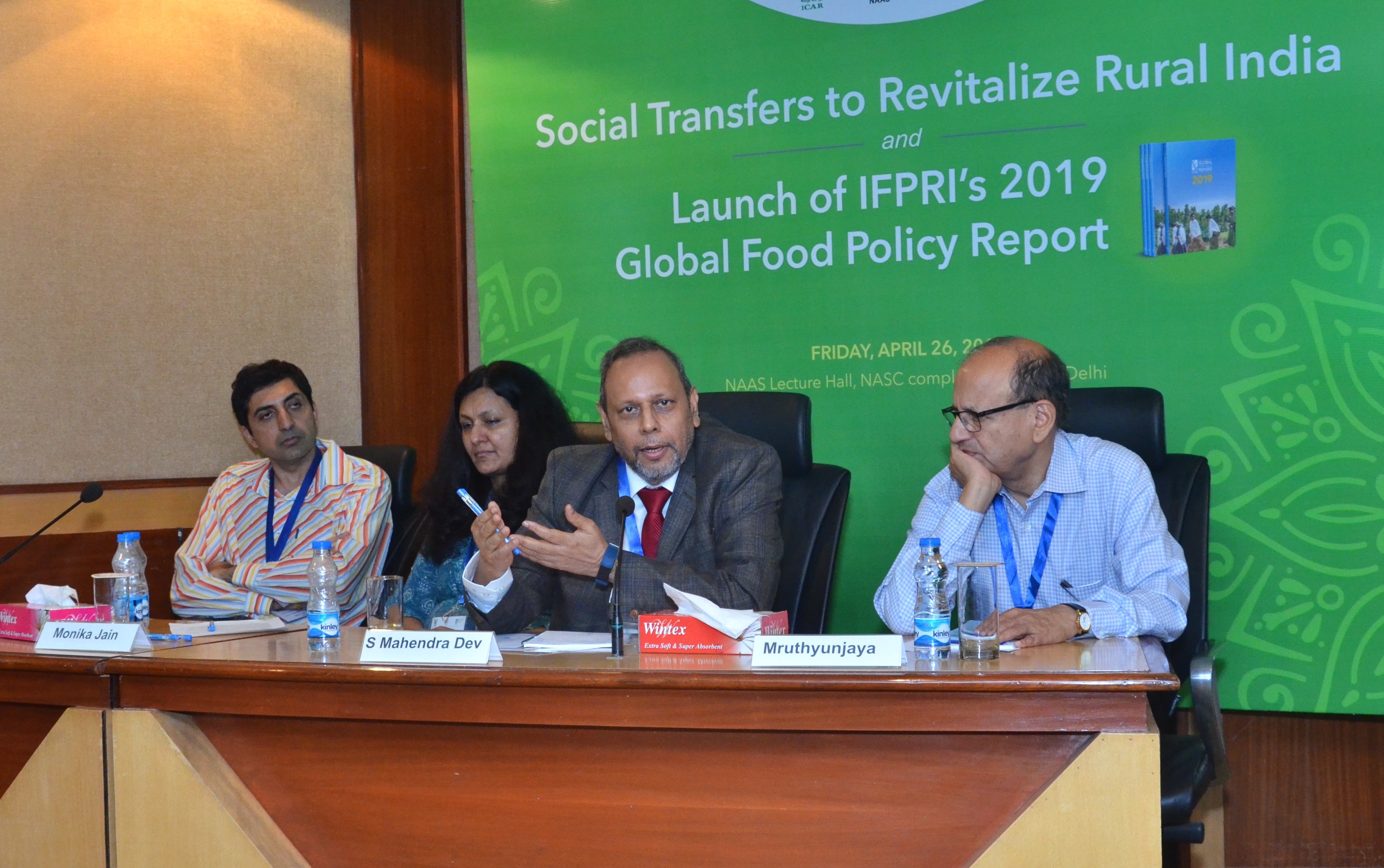Agrarian distress, farm waivers, and agricultural sops dominated the political and policy environment ahead of India’s general elections. Amid the hustle and bustle of the world’s largest democracy going to polls, the IFPRI launched its 2019 Global Food Policy Report (GFPR) at the epicenter of the country’s policymaking, New Delhi, at a day-long policy seminar on April 26.
Along with focusing on rural revitalization—the theme of this year’s GFPR—panelists laid out how the food security landscape has evolved in the region and highlighted new areas that require attention to revitalize rural areas. The seminar, Social Transfers to Revitalize Rural India, was jointly organized with the National Academy of Agriculture Sciences (NAAS) and the Indian Council of Agricultural Research (ICAR).
IFPRI’s new Director for South Asia, Shahidur Rashid, emphasized that India and the entire region have made significant progress on food security in recent years, and that the situation has changed dramatically from 1970s, when South Asia struggled with extreme food insecurity.
“We now need to refocus rural development policy to address emerging issues such as those related to climate change, urbanization, prevalence of poverty in rural areas, and strategies to deal with these issues,” Rashid said. He also commended the work of outgoing IFPRI Director for South Asia P.K. Joshi and IFPRI Director General Shenggen Fan, who completes his term later this year.
Fan recalled that he had started his career with IFPRI in India—and, sharing his post-IFPRI plans, he said that he will be advising the Chinese government, and in his new role hopes to fill a void in the country for shaping policies and programs based on data and evidence. “Finally, home is calling. In Chinese tradition, we have a saying that we always have to go back to our roots,” he said. Both China and India have a lot to learn from each other, said Fan, and stressed the importance of continuing to work together to ensure that nobody is left behind.
Challenges to ensuring food security and reducing poverty have evolved over the last few years, said Joshi, now an IFPRI senior adviser. “Malnutrition is leading to high child mortality, stunting and wasting; we have acute problem of anemia among women; seasonal unemployment leading to agrarian distress, and lack of basic amenities in rural areas, are emerging as major challenges and need immediate attention,” he said.
Drawing on the report for specific lessons for India, Indira Gandhi Institute of Development Research Director and Vice-Chancellor Mahendra Dev emphasized that rural development in India requires focus on six key areas: The rural non-farm sector; investments in basic infrastructure; empowering women; promoting information technology; social transfers to rural household who would otherwise not have access to food; and governance and implementation efficiency.
The director of the ICAR-National Institute of Agricultural Economics and Policy Research, Suresh Pal, underlined the importance of strengthening rural-urban links for rural revitalization. “Unless villages and rural areas are well-connected to the urban areas, rural revitalization may not be possible,” said Pal.
Summing up the proceedings of the panel, Trust for Advancement of Agricultural Sciences (TAAS) Founder and Chairman Raj Paroda said it’s important for India, and the world, to pay urgent attention to UN Sustainable Development Goals (SDGs): “If India doesn’t move faster to achieving SDGs, globally we wouldn’t be able to achieve these goals.”
Smita Aggarwal is an IFPRI Senior Communications Specialist.







